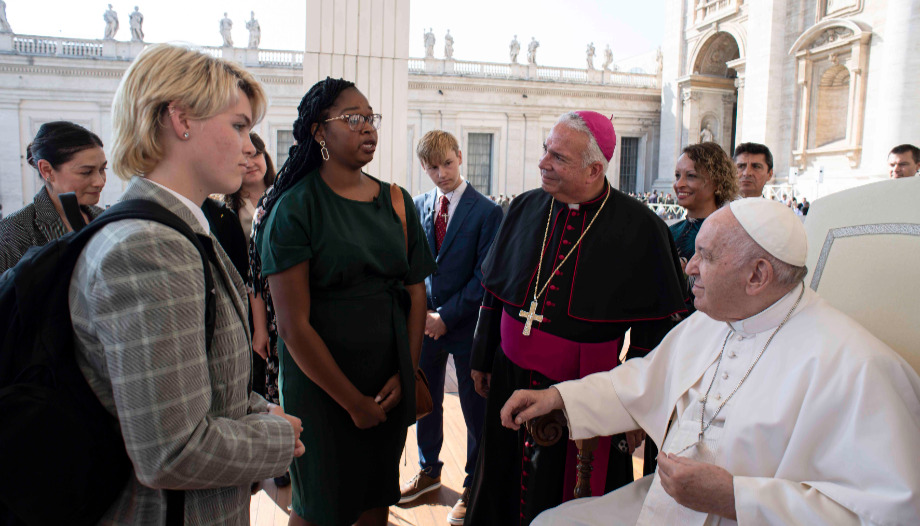In the catecheses of the last few weeks the Holy Father has been explaining the conditions for making a good spiritual discernment. Today we have focused on the importance of one's own biography and its narrative. This must be interpreted as a book that has been given to us and we must know how to read it.
As a model of a saint who knows how to interpret his own biography, the Pope referred to St. Augustine, whom he defined as a great seeker of truth. He also recalled the words of the saint in which he said: "And behold, you were within me and I was outside, and outside I was looking for you; and deformed as I was, I threw myself on the beauties of your creatures. You were with me, but I was not with you" (Confessions X, 27.38). And the Pope continued recommending the Augustinian advice to enter into oneself because it is in the interior of man that truth resides.
The model proposed by the Pope
The Pontiff pointed out that we men have also had the same experiences as Augustine, with negative and victimizing thoughts, such as "''I am worthless,' 'everything goes badly for me,' 'I will never do anything good,' etc. Reading one's own history also means recognizing the presence of these 'toxic' elements, but in order to widen the plot of our story, learning to notice other things, making it richer, more respectful of its complexity, also managing to pick up the discreet ways in which God acts in our life".
This mode of reasoning has a narrative approach, i.e., it does not focus on a single action, but includes the context: "Where does this thought come from? Where does it take me? When have I had the chance to encounter it before? Why is it more insistent than others?".
Narrative of one's own life
The Pope pointed out how important it is for each person to construct the story of his or her own life, capturing the nuances and significant details that can be of value as aids, even if at first they do not seem so at first glance. "A reading, a service, an encounter, at first glance considered things of little importance, in the following time transmit an inner peace, transmit the joy of living and suggest further initiatives of good. To stop and recognize this is indispensable for discernment; it is a work of gathering precious and hidden pearls that the Lord has sown in our soil".
Getting used to interpreting one's own life brings us closer and closer to the wave of God, educates and sharpens our gaze, discovering the small miracles that the Lord performs for us every day. In the final part of the Pope's address, he invited us to ask ourselves, "Have I ever told anyone about my life? This is one of the most beautiful and intimate forms of communication. This allows us to discover things unknown until then, small and simple things, but, as the Gospel says, it is precisely from small things that great things are born" (cfr. Lc 16,10).





 Discernment in the family environment
Discernment in the family environment





